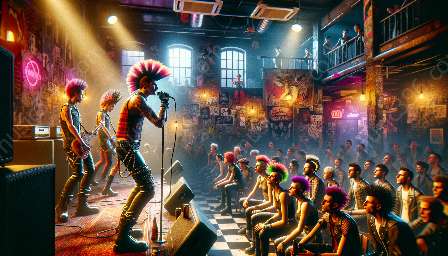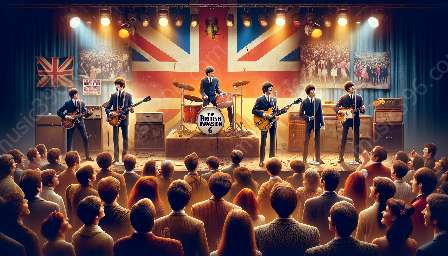Rock music played a significant role in shaping the narrative of the civil rights movement, influencing youth culture, and contributing to societal change. During a time of widespread social and political upheaval, rock music emerged as a powerful medium for expressing dissent, promoting equality, and advocating for justice.
The Intersection of Rock Music and Civil Rights
Amidst the turbulent era of the civil rights movement, rock music became a reflection of the shifting social dynamics and a catalyst for fostering solidarity and resilience within communities. As artists and musicians embraced the spirit of rebellion and empowerment, their music served as a unifying force that transcended racial and cultural barriers.
Rock music became a platform for addressing issues of systemic racism, segregation, and inequality, amplifying the voices of marginalized groups and shedding light on the injustices they faced. With its raw energy and emotive lyrics, rock music resonated with the emotions and aspirations of young individuals who sought to challenge the status quo, leading to a powerful fusion of art, activism, and social change.
The Role of Youth Culture in Shaping the Movement
Youth culture played a pivotal role in propelling the civil rights movement forward, and rock music served as its anthemic soundtrack. The rebellious spirit and countercultural ethos of rock music appealed to a generation of young activists who sought to dismantle oppressive structures and pursue a vision of a more inclusive and equitable society.
By aligning themselves with the music and message of rock musicians, young people forged a sense of collective identity and belonging, fostering a shared commitment to challenging injustice and advocating for civil rights. The electrifying sounds of rock music became a unifying force that galvanized youth to participate in protests, demonstrations, and acts of civil disobedience, ultimately shaping the trajectory of the civil rights movement.
Raising Awareness and Mobilizing Action
Rock music served as a tool for raising awareness about the social and political issues at the heart of the civil rights movement. Through its compelling narratives and impassioned performances, rock musicians brought attention to the struggles faced by marginalized communities and the urgent need for systemic change.
Concerts and musical events provided opportunities for activists to mobilize and connect with like-minded individuals, fostering a sense of solidarity and purpose. Rock music became a vehicle for inspiring action, cultivating empathy, and instigating conversations that challenged societal norms and prejudices, ultimately contributing to a collective awakening and a call for justice.
Legacy and Continuing Influence
The impact of rock music on the civil rights movement reverberates through history, leaving a lasting imprint on the cultural and societal landscape. The enduring legacy of artists who fearlessly spoke out against injustice and inequality continues to inspire individuals and movements dedicated to advancing civil rights and social justice.
From the anthems of empowerment to the rebellious spirit of resistance, rock music remains intertwined with the ethos of civil rights, serving as a poignant reminder of the transformative power of art in stirring hearts, challenging minds, and driving meaningful change.


















































